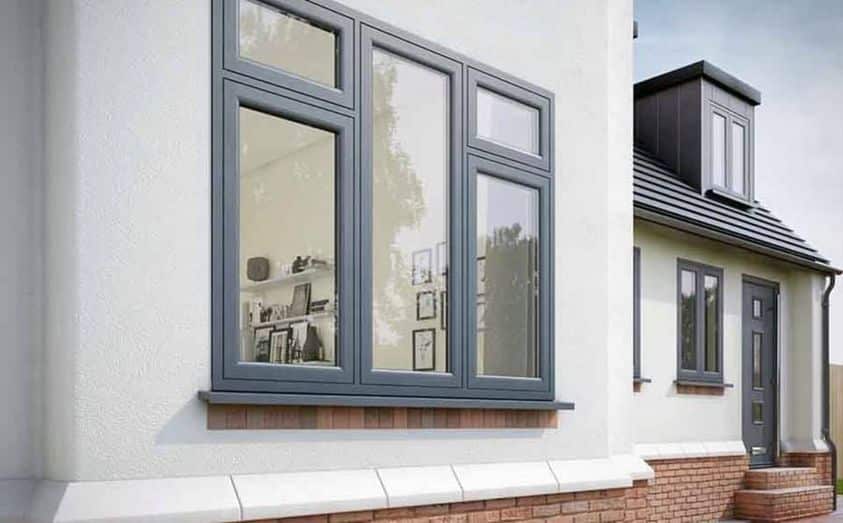uPVC is a very popular material for both residential and commercial use, and not just because it’s cost-effective. When compared to other materials for the construction of windows, the durable and thermally efficient credentials of uPVC. Learn more as to why uPVC can provide insulation to your residential and commercial buildings.
What are uPVC and uPVC paints?
uPVC stands for unplasticised polyvinyl chloride, and it is a type of plastic that is often used in the construction industry. It is made by polymerising vinyl chloride without adding plasticisers, which makes it more rigid and durable. uPVC paints designed for use on uPVC surfaces such as windows, doors, conservatories, and more.
How does uPVC provide insulation?
uPVC is an excellent insulator because it is a poor conductor of heat. Heat tends to transfer through materials that are good conductors, such as metals. However, uPVC has a low thermal conductivity, which means that it does not allow heat to pass through it easily. This property makes uPVC an excellent material for insulation.
In addition to its low thermal conductivity, uPVC also has air pockets within its structure. These air pockets help to reduce heat transfer further. When uPVC is used for windows and doors, it forms a tight seal around the frame, preventing drafts and reducing heat loss. This makes uPVC a good choice for homes in colder climates where energy efficiency is important.
How does uPVC spray paint provide insulation?
Spray paint is primarily used to change the colour or appearance of the uPVC surface, but it does not introduce any additional insulating properties. However, it is worth noting that dark-coloured paint can absorb more heat from sunlight, potentially increasing the temperature of the uPVC surface and affecting its overall thermal performance to some extent.
If you are looking to improve insulation, it is more important to focus on the quality and installation of the uPVC windows and doors themselves rather than the spray paint. Look for uPVC products that have good insulation ratings and ensure proper installation to maximise their thermal performance.
Should I use uPVC spray on my property?
If you’re unsure whether you should spray paint your property, simply fill in your details, and we’ll be in touch. Alternatively, click on the number below to speak to one of our expert team members. We’ll be happy to answer all of your questions.



